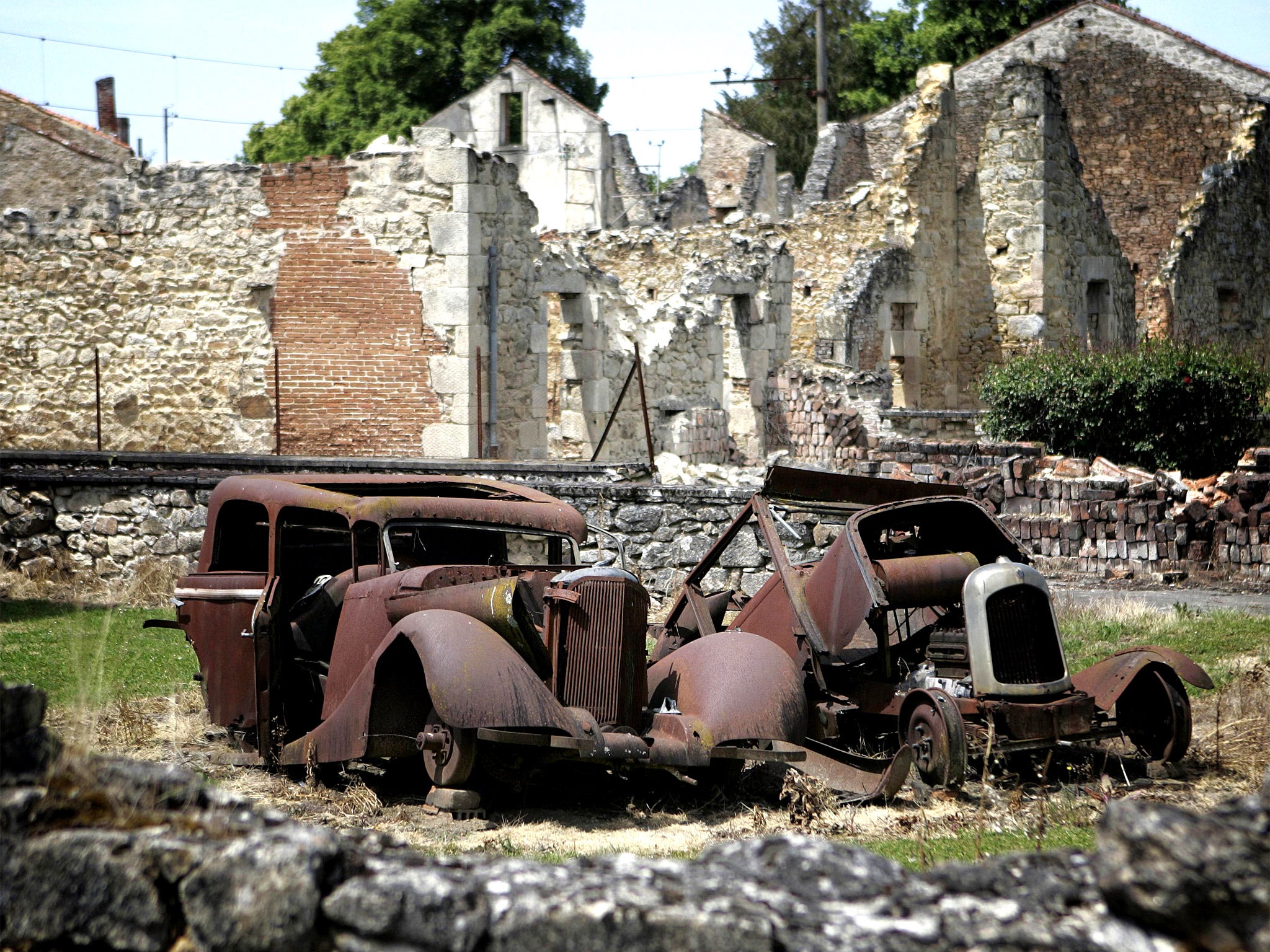Former SS man charged with taking part in massacre at French village that killed 642
Oradour-sur-Glane has been deliberately left untouched as a permanent memorial to the 642 people slaughtered there on 10 June 1944

Your support helps us to tell the story
From reproductive rights to climate change to Big Tech, The Independent is on the ground when the story is developing. Whether it's investigating the financials of Elon Musk's pro-Trump PAC or producing our latest documentary, 'The A Word', which shines a light on the American women fighting for reproductive rights, we know how important it is to parse out the facts from the messaging.
At such a critical moment in US history, we need reporters on the ground. Your donation allows us to keep sending journalists to speak to both sides of the story.
The Independent is trusted by Americans across the entire political spectrum. And unlike many other quality news outlets, we choose not to lock Americans out of our reporting and analysis with paywalls. We believe quality journalism should be available to everyone, paid for by those who can afford it.
Your support makes all the difference.German state prosecutors have charged an 88-year-old former Waffen SS soldier with involvement in a Second World War massacre in the French village of Oradour-sur-Glane in which 642 people, many of them women and children, were rounded up and slaughtered.
Oradour-sur-Glane is a byword for Nazi barbarism in France. The “ ghost” hamlet, located in the Limousin region, has been deliberately left untouched as a permanent memorial to those slaughtered there on 10 June 1944.
France’s first post-war President, Charles de Gaulle, decreed that Oradour should be a reminder of “the cruelty of the Nazi occupation”.
Some 60 former Waffen SS troops were tried for the massacre in the 1950s. Twenty were convicted but all were subsequently released. As part of a new German investigation begun last year, Dortmund state prosecutors announced that they had charged one of the six men involved who are still alive.
The accused, who was named only as Werner C, lives in Cologne, and was a member of an SS armoured division. A prosecutor’s statement said he had been charged with taking part “in the murder of 25 people… and with aiding and abetting the murder of several hundred people”.
His lawyer, Rainer Pohlen, said that although his client was in the village at the time, he had nothing to do with the killings. The extreme brutality of the massacre was exceptional for Nazi-occupied France. Women and children were herded into Oradour’s church. Hand grenades were thrown in and the building was set ablaze. Those who tried to escape through the windows met a hail of machine-gun fire. The village was then looted and burned.
The men of Oradour were locked in a barn. SS machine gunners shot at their legs and then doused them in petrol before setting them on fire. Some say the SS was seeking retribution for the kidnap of a German officer.
The new inquiry is based on evidence in files kept by the Stasi (the former East Germany’s secret police). The files contained details of six soldiers then aged 18 or 19 who were still alive.
Oradour has clouded Franco-German relations for decades. Last September Joachim Gauck, the German President, visited the village and joined hands with his French counterpart, François Hollande, and survivors in a gesture of reconciliation.